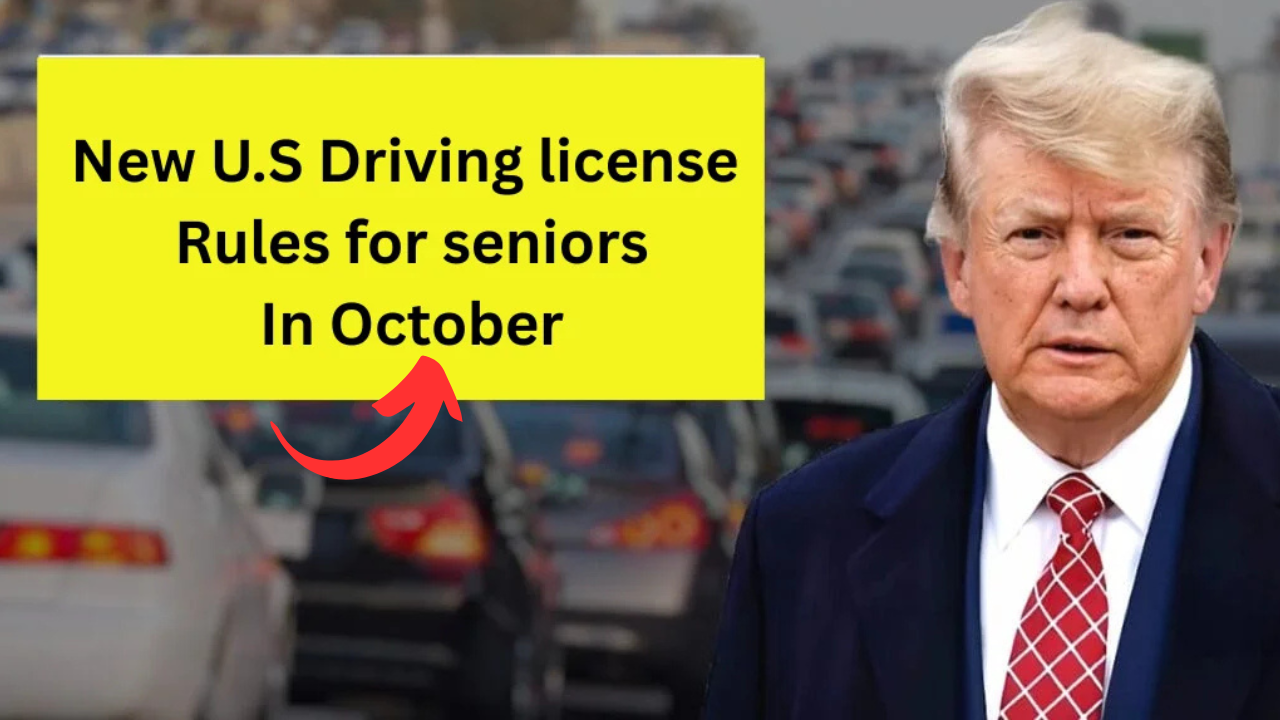Driving License isn’t just a way to get from one place to another—it’s a symbol of freedom, confidence, and independence, especially for senior citizens. However, as the US population ages, states across the country are changing their driver’s license renewal rules to ensure everyone’s safety on the roads.
If you’re over 70 years old or nearing that milestone, you may soon face new requirements for renewing your driver’s license. These changes aren’t about snatching someone’s keys—they’re about protecting older drivers and helping them remain safe and independent for as long as possible.
Here’s everything you need to know about the new US driver’s license rules for seniors in 2025.
Why the New Rules Are Being Implemented
According to the Federal Highway Administration, the number of licensed drivers over the age of 65 in the United States is higher than ever before—nearly 50 million. Although most seniors are safe drivers, studies show that reaction time, vision, and hearing can decline with aging.
State officials and transportation departments are focused on ensuring that seniors remain able to drive without unnecessary restrictions. The new measures are designed to identify potential safety problems early—not to punish, but to support and guide older drivers.
These rules aim to strike a balance between safety and independence, giving seniors every opportunity to continue driving responsibly while addressing age-related changes through periodic checkups.
Key Changes in Senior Driver’s License Rules
The updated guidelines vary from state to state, but most follow a similar framework. Here are the main changes seniors over 70 should be aware of:
-
Shorter Renewal Periods
Seniors will now need to renew their driver’s licenses every 3–5 years, compared to the standard 8–10 years for younger drivers. This allows for more frequent vision and health updates. -
Mandatory Vision Tests
In many states, seniors must pass an eye exam at each renewal — even if they renew by mail or online. Some DMVs are partnering with local optometrists for certified vision screenings. -
In-Person Renewals
Several states, including California, Florida, and Illinois, now require in-person renewals once drivers reach age 70 or 75. This ensures that the DMV can perform vision and mobility checks, as well as review any medical conditions that may affect driving. -
Medical and Cognitive Assessments
Drivers may be asked to provide a medical clearance form if they have conditions like diabetes, dementia, or neurological disorders that could impact road safety. Some states have introduced simple cognitive tests to measure reaction time and memory. -
Behind-the-Wheel or Written Tests (in Select Cases)
If a senior’s driving record shows multiple recent violations or accidents, the DMV may request a re-examination — either a short written test or a supervised driving test to assess ability.
What Seniors Can Do to Stay Road-Ready
The goal isn’t to make driving harder for seniors, but to help them stay safe and confident. Here are some proactive steps to keep your license and your peace of mind:
-
Schedule regular eye and hearing exams.
Clear vision and good hearing are essential for spotting hazards and responding to sounds like sirens or horns. -
Review your medications.
Some prescriptions can cause drowsiness or slow reaction times. Talk to your doctor if you experience side effects. -
Consider a senior driving course.
Programs offered by AARP and AAA can refresh your driving knowledge, teach new defensive driving skills, and may even lower your insurance premiums. -
Drive during optimal conditions.
Avoid night driving or rush-hour traffic if it feels uncomfortable. Choose familiar routes with good lighting. -
Be honest with yourself.
If driving begins to feel stressful or unsafe, explore alternatives such as ride-sharing, public transportation, or senior community shuttle services.
How to Renew Under the New Rules
Most states have already begun implementing these updated procedures, while others will gradually implement them until 2026. To renew your license under the new system:
- Check your state’s DMV website for renewal policies for senior citizens.
- Bring proof of identification, proof of residency, and your current license.
- Be prepared for a vision test or health questionnaire.
- Update your photo and signature if you’re renewing in person.
- Pay the renewal fee – usually between $25 and $50.
Final Thoughts
The new driver’s license rules for seniors aren’t intended to take away their independence, but rather to ensure everyone on the road is safe. These updates encourage seniors to maintain good health, stay active, and remain confident drivers.
For seniors, driving symbolizes independence—the ability to visit loved ones, run errands, and enjoy life as they please. With these helpful changes, the message is clear: responsible driving is possible at any age with the right care and awareness.
If you’re over 70, be sure to review your state’s renewal guidelines and get the required test in advance. After all, safe driving isn’t about age—it’s about competence, awareness, and responsibility.

